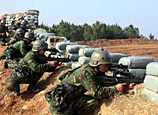
Foreign investors began contracting and buying Russian farmland after Russia's land law was revised in 2002 to liberalize transactions.
Some Russian officials have recently proposed the concept of a Far East "grain corridor" to transport and export grain output from Siberia to the Asia-Pacific region. An official from Russian United Grain Co once stated that Siberia alone had the potential to export 8 to 10 million tons of grain by 2020.
Qi Wenhai, a professor at Heilongjiang University and an expert on Russian affairs, said that the "grain corridor" concept was part of Russia's overall plan for integration with other economies in the Asia-Pacific region.
But Qi said that security concerns and the potential threat of imported grain to China's farming sector were two problems that could arise from Sino-Russian agricultural cooperation.
"Some Russian officials are oversensitive to foreign capital and labor in the Far East," which leads to frequent changes to laws in this field, Qi said. He even warned that a massive influx of foreign capital in Russia may backfire, as Russians need time to strike a balance between opening their economy and concerns over national security.
To cope with potential risks, 66 businesses from Heilongjiang launched the Russia Agricultural Industry Alliance in late October.
"Ours is a non-governmental organization that carries out self-regulation and prevents violations of Russian laws. But we would also lobby for more government support," said Liu Jianping, a Chinese farmer in Primorsky Territory.
















 Challenges remain for smoking ban
Challenges remain for smoking ban


![]()
